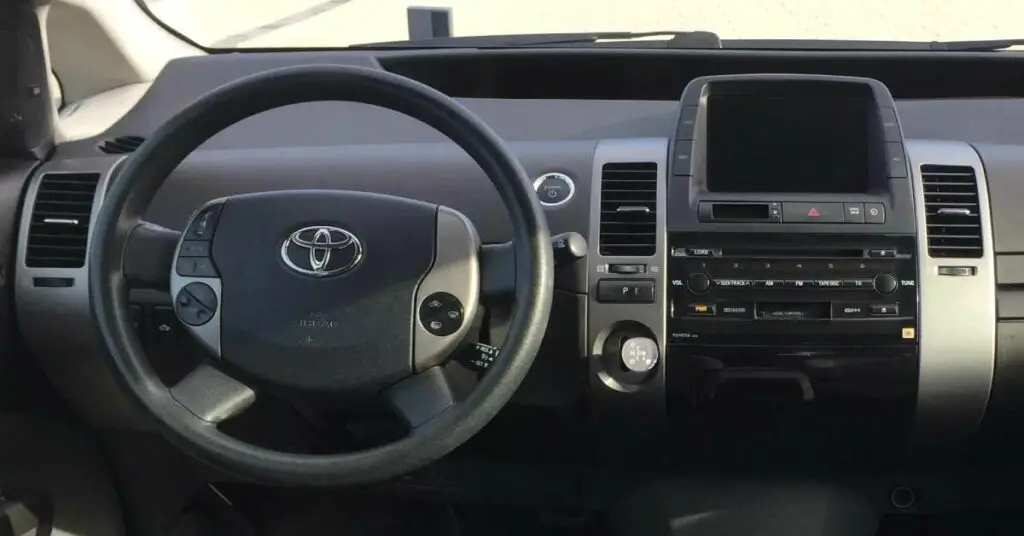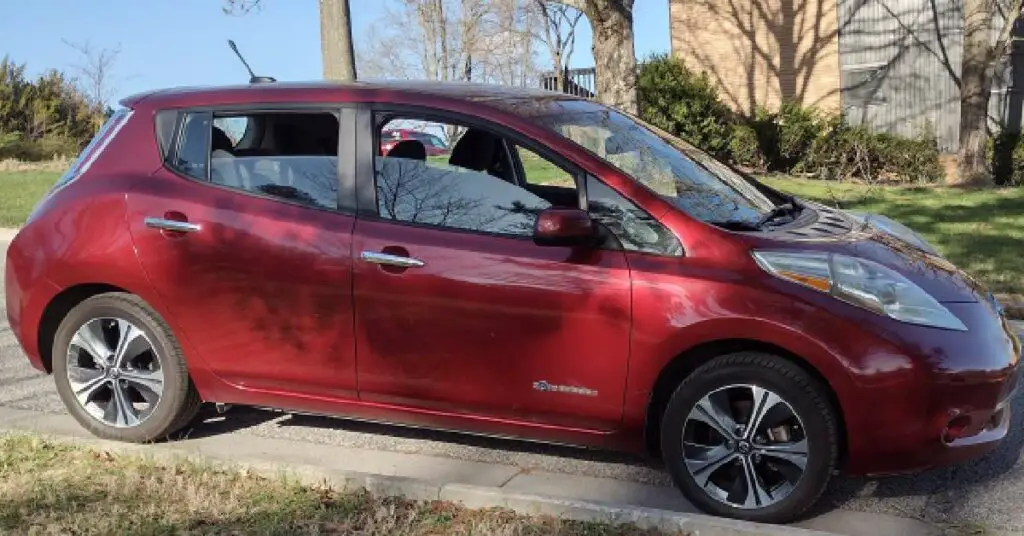
We’ve got a clash of the titans today as two eco-friendly automotive giants go head-to-head in the arena. In one corner, we have the electric gladiator, the Nissan Leaf. And in the other, the hybrid heavyweight, the Toyota Prius. Both contenders are well-respected in their own right, but there can only be one winner in this faceoff. So, buckle up and get ready for an electrifying showdown as we pit the Nissan Leaf against the Toyota Prius.
A Tale of Two Technologies
Before we dive into the nitty-gritty, let’s take a moment to understand the key differences between these two eco-champions. The Nissan Leaf is a fully electric vehicle (EV), meaning it runs purely on battery power. On the other hand, the Toyota Prius is a hybrid, which combines a gasoline engine with an electric motor to improve fuel efficiency.
Nissan Leaf: Zero Emissions, Infinite Possibilities
The Leaf is Nissan’s crowning achievement in the EV market. With a range of up to 226 miles on a single charge, this electric warrior is perfect for those looking to ditch the pump and go green. Say goodbye to oil changes and hello to instant torque, as the Leaf offers a zippy driving experience that’ll leave you grinning from ear to ear.
Toyota Prius: The OG Hybrid Hero
The Toyota Prius has long been the poster child for hybrid vehicles, and for good reason. This eco-conscious icon offers impressive fuel efficiency, averaging around 54 mpg in the city and 50 mpg on the highway. Plus, it’s got that unmistakable silhouette that’ll have everyone knowing you’re driving the gold standard in green motoring.
Performance: Electric vs Hybrid
When it comes to performance, these two eco-warriors take very different approaches. The Nissan Leaf is all about that instant torque, with its electric motor offering rapid acceleration that’ll make you feel like you’re driving a sports car. The Leaf’s handling is nimble and responsive, making it a blast to drive around town.
The Toyota Prius, on the other hand, offers a more subdued driving experience. It’s not as quick off the line as the Leaf, but it’s no slouch, either. The Prius makes up for its lack of instant torque with smooth power delivery and a comfortable ride, perfect for long drives and road trips.

Charging vs Fueling: The Convenience Factor
One of the main concerns for potential EV buyers is the availability of charging stations. While the number of charging stations has been growing rapidly, it’s still not quite as convenient as stopping by a gas station. The Leaf can be charged at home using a Level 2 charger, but it’ll take about 8 hours to get a full charge. On the bright side, the cost of electricity is generally cheaper than gas, so your wallet will thank you in the long run.
The Toyota Prius doesn’t have this problem, as it relies on gasoline like a traditional car. This means you can easily fuel up at any gas station, which can be a huge plus for those who value convenience. However, you’ll still need to pay for gas, and prices can fluctuate wildly.
Interior and Features: Which Car Treats You Better?
The Nissan Leaf offers a modern and well-equipped interior, with an 8-inch touchscreen infotainment system, Apple CarPlay and Android Auto compatibility, and a suite of advanced safety features, including forward collision warning and automatic emergency braking.
The Toyota Prius also boasts a comfortable and feature-rich interior, but its styling may not be for everyone. The dashboard design is futuristic and polarizing, and the centrally-mounted instrument cluster can take some getting used to. Nonetheless, the Prius also comes with a plethora of features, such as an 11.6-inch touchscreen infotainment system, Apple CarPlay and Android Auto compatibility, and a suite of advanced safety features like adaptive cruise control and lane departure warning.
Pricing: Which Eco-Warrior Fits Your Budget?
When it comes to pricing, the Nissan Leaf and Toyota Prius offer different value propositions. The base model Leaf starts at around $31,600, but depending on the tax credits and incentives available in your area, you could potentially save thousands off the sticker price. Additionally, the cost of electricity can be cheaper than gasoline, so the Leaf might save you money in the long run.
The Toyota Prius has a lower starting price of around $24,500, but don’t forget to factor in the ongoing cost of gasoline. While the Prius is highly fuel-efficient, you’ll still need to budget for gas, and fuel prices can be unpredictable.
| Feature/Spec | Nissan Leaf | Toyota Prius |
|---|---|---|
| Starting Price | $31,600 | $24,500 |
| Powertrain | Electric | Hybrid |
| Range (miles) | Up to 226 | ~500 (Gas + Electric) |
| Fuel Economy (city/hwy) | 123/99 MPGe | 54/50 MPG |
| Horsepower | 147 – 214 hp | 121 hp |
| Battery Capacity | 40 – 62 kWh | 1.2 kWh (Hybrid) |
| Charging Time (Level 2) | ~8 hours (full charge) | N/A (Hybrid) |
| Cargo Space (cu.ft.) | 23.6 – 30.0 | 24.6 – 27.4 |
| Infotainment Screen Size | 8-inch | 11.6-inch |
| Apple CarPlay / Android Auto | Yes/Yes | Yes/Yes |
| Safety Features | Forward collision warning, automatic emergency braking, etc. | Adaptive cruise control, lane departure warning, etc. |
Nissan Leaf vs Toyota Prius: Final Verdict
When it comes to the Nissan Leaf vs Toyota Prius, there’s no clear winner, as both cars cater to different needs and preferences. If you’re ready to embrace the future and want an all-electric vehicle with impressive range, instant torque, and lower long-term operating costs, the Nissan Leaf is your champion.
On the other hand, if you prioritize fuel efficiency and convenience, and you’re not quite ready to ditch the gas pump completely, the Toyota Prius is an excellent choice. As the original hybrid hero, it has a proven track record and offers a comfortable, feature-rich driving experience.
Ultimately, the choice between the Nissan Leaf and Toyota Prius comes down to personal preference and lifestyle. So, weigh the pros and cons, take a few test drives, and choose the eco-warrior that suits you best. No matter which one you pick, you’ll be doing your part to help save the planet, one mile at a time.

As a seasoned mechanic and proud owner of three successful car workshops, I’ve dedicated my life to helping people just like you overcome their everyday automotive challenges. I created this website as a labor of love, with a simple mission: to make car maintenance and repairs more accessible and approachable for the “average joe.”
